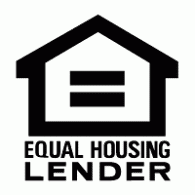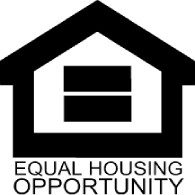Choosing the right mortgage is a critical decision in your home-buying journey. For many first-time buyers and seasoned homeowners alike, it often comes down to a choice between Conventional Loans and FHA Loans. While both are designed to help you finance your dream home, they come with distinct differences that could significantly impact your finances.
Let’s explore the key features of each loan type, the advantages, and which one might be the best fit for your unique situation.
What is a Conventional Loan?
A Conventional Loan is not insured or guaranteed by a government entity, such as the Federal Housing Administration (FHA), the Department of Veterans Affairs (VA), or the USDA. Instead, these conventional loans are backed by private lenders. They typically follow the guidelines set by Fannie Mae and Freddie Mac, two government-sponsored entities that help promote homeownership.
Key Features of Conventional Loans:
- Down Payment: Lenders for Conventional loans usually require a minimum down payment of 3-20%, depending on the lender and borrower’s financial situation.
- Private Mortgage Insurance (PMI): If you put down less than 20%, you’ll likely need to pay for PMI. This insurance protects the conventional loan lender in case you default on the loan.
- Credit Score: Typically, you’ll need a higher credit score—usually 620 or above—to qualify for a conventional loan. Borrowers with excellent credit scores (above 740) often get the best interest rates.
- Conventional Loans Limits in Scottsdale, AZ: There are loan limits for conventional loans in Scottsdale, AZ that vary by location. In 2024, the conforming loan limit for single-family homes is around $726,200 in most areas but can be higher in high-cost regions.
- Flexibility: Conventional loans lenders offer more flexibility in terms of property types, such as second homes or investment properties.
What is an FHA Construction Loan In Arizona?
FHA Loans are backed by the Federal Housing Administration, making them accessible to a broader range of borrowers, especially first-time homebuyers or those with less-than-perfect credit. The government guarantee allows lenders to offer lower down payments and more lenient credit requirements.
Key Features of FHA Construction Loans In Arizona:
- Down Payment: FHA construction loans in Arizona typically require as little as 3.5% down, which is a great option for those struggling to save a large down payment.
- Mortgage Insurance Premium (MIP): FHA loans require both an upfront mortgage insurance premium (UFMIP) and an annual mortgage insurance premium (MIP) that is paid monthly. Unlike PMI, MIP is required for the life of the loan unless you refinance to a conventional loan.
- Credit Score: You can qualify for an FHA loan with a credit score as low as 580 (sometimes even lower with higher down payments), making it an attractive option for those with less stellar credit histories.
- Debt-to-Income Ratio (DTI): FHA loans often allow a higher DTI ratio (sometimes up to 57%) than conventional loans, which may make it easier to qualify.
- FHA Construction Loan Limits In Scottsdale, AZ: FHA loan limits in Scottsdale, AZ vary by region, and in 2024, the base limit is $472,030 for single-family homes, though high-cost areas may have higher limits.
Key Differences Between Conventional and FHA Loans
| Feature | Conventional Loan | FHA Loan |
|---|---|---|
| Down Payment | 3-20%, typically 5-10% | 3.5% (as low as) |
| Credit Score | 620+ | 580+ (500 in some cases) |
| Mortgage Insurance | PMI required if <20% down | MIP required regardless of down payment |
| Debt-to-Income Ratio | 43-50% | Up to 57% |
| Loan Limits | $726,200 (higher in certain areas) | $472,030 (higher in high-cost areas) |
| Best For | Borrowers with good credit and savings | First-time buyers or those with lower credit scores |
Which Loan is Right for You?
Your choice between a Conventional and an FHA construction loan in Arizona depends on several factors, including your credit score, down payment, and long-term financial goals. Here’s a breakdown of which loan may suit you better:
If You Have Strong Credit and a Large Down Payment:
- A Conventional Loan might be the best option for you. It allows you to avoid long-term mortgage insurance costs if you can put down 20% or more, and it often comes with more competitive interest rates for high-credit borrowers.
If You Have a Modest Down Payment and Lower Credit:
- An FHA Construction Loan in Arizona is a great choice for buyers with credit challenges or smaller savings. The flexible credit requirements and low down payment make homeownership more accessible. However, keep in mind the additional cost of mortgage insurance over the life of the loan.
If You’re Buying in a High-Cost Area:
- Conventional loans typically have higher loan limits in Scottsdale, AZ than FHA loans in high-cost areas, making them a better choice if you’re looking at pricier properties. FHA loans, while useful for first-time buyers, might not cover as much for luxury or higher-end homes.
Final Thoughts
Deciding between a conventional or FHA loan ultimately depends on your financial situation and homeownership goals. If you’re a buyer with a solid credit history and enough savings for a larger down payment, a conventional loan offers more flexibility and lower long-term costs. However, if you’re a first-time homebuyer or someone with a lower credit score, the FHA loan can open doors to homeownership with lower upfront barriers.
Before making a final decision, it’s always wise to consult with a mortgage professional. They can help you assess your financial health and guide you toward the loan that best fits your needs.
By thoroughly understanding the differences between conventional and FHA loans, you’ll be better prepared to make an informed decision and move closer to owning the home of your dreams.
This improved version highlights key distinctions in a clearer way while providing more context for decision-making. It is also more concise and informative.






